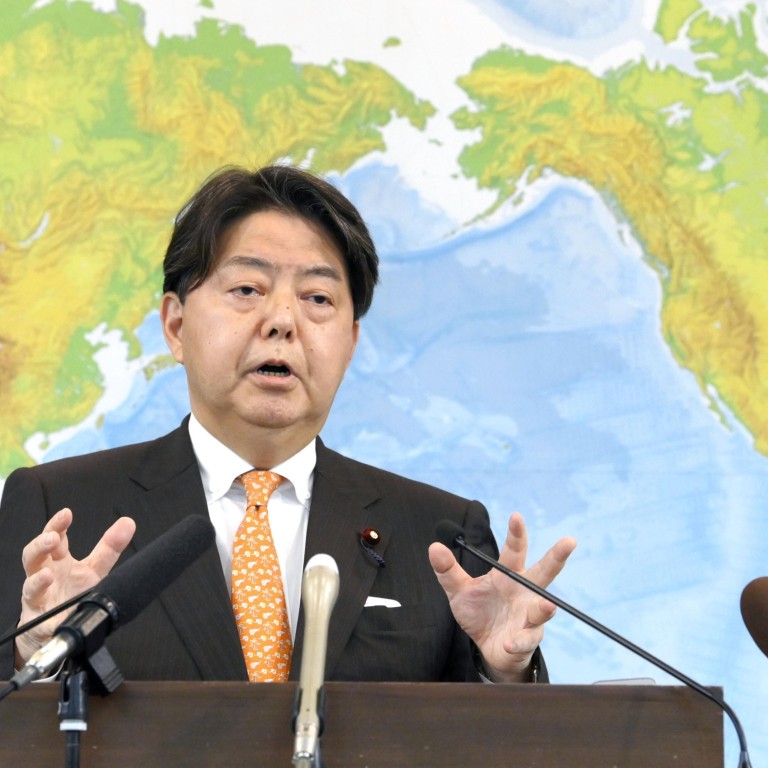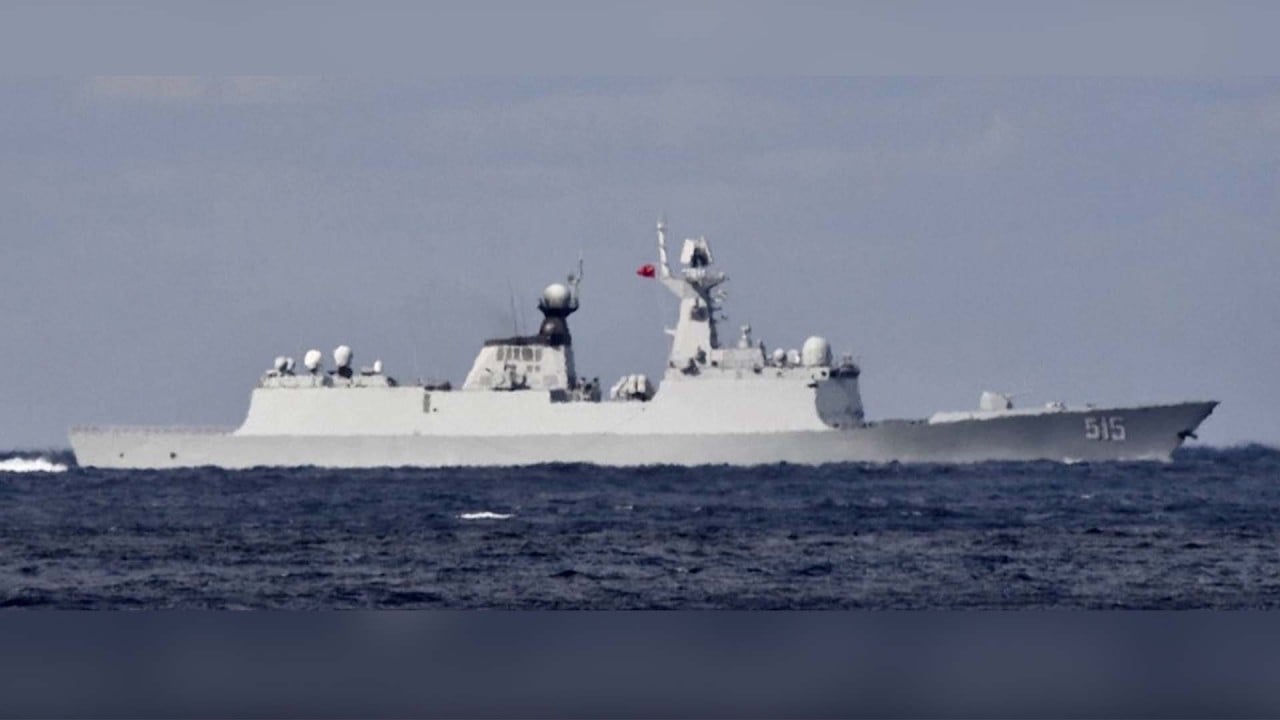
China tells Japan to put ties with neighbours before alliance with US
- Foreign Minister Wang Yi also emphasises China’s own contact with US, days after summit between the two countries’ presidents
- Japanese counterpart Yoshimasa Hayashi expresses concerns over Taiwan Strait, Hong Kong and Xinjiang
Wang told Yoshimasa Hayashi over the telephone on Thursday that Tokyo should focus on its own interests and those of the region.
The 40-minute phone call was Wang’s first formal diplomatic contact with Hayashi since the latter took office last Wednesday.
Wang stressed that, while Japan and the US were allies, China and Japan were neighbours, and the two Asian powers should not pose a threat to each other.
“China and the US are communicating on strategic issues concerning the future of the two countries,” Wang was quoted as saying by the Chinese foreign ministry.
“We hope Japan can grasp the trend, keep in mind the common interests of its own country and the region, and properly handle its relations with China and the US.”
Hayashi emphasised the “importance of peace and stability in the Taiwan Strait” when expressing Tokyo’s “serious concerns” over ongoing activity by Chinese ships near the Diaoyu Islands – controlled by Japan, which calls them the Senkaku Islands.
In late August, there was a collision between a Chinese government ship and a Japanese coastguard vessel near the Diaoyus, when four Chinese ships tried to stop a fishing boat carrying Japanese activists landing on the disputed island. It was the 28th intrusion by a Chinese boat into the waters around the islands this year, Nippon.com reported.
Beijing and Tokyo will next year mark the 50th anniversary of the normalisation of their diplomatic ties.

01:56
Chinese, Russian warships sail through Japan strait for first time
China views Tokyo’s actions as being influenced by the United States, which has been working to boost its ties with regional allies since Biden became president.
Wang told Hayashi that on major issues such as history and Taiwan, which were central to the political foundation for their relations and basic trust, China and Japan should avoid crossing each other’s bottom lines.
Beijing has been angered by Japan’s increasingly assertive role in US-led military activities in the Indo-Pacific region, including joining freedom of navigation operations in the East China and South China seas, and specifying for the first time the strategic importance of stability in the Taiwan Strait in its 2021 defence white paper.
Cheung Mong, an associate professor at Waseda University in Japan, said tensions between China and Japan had been alleviated since the Xi-Biden summit.
But he said that despite this, the Japan Maritime Self-Defence Force had “not relaxed its patrols and training near the waters of Diaoyu Island [between Taiwan and Japan]”.

